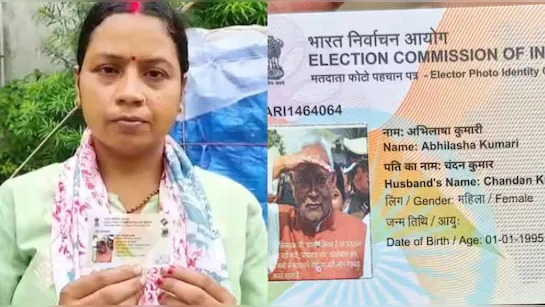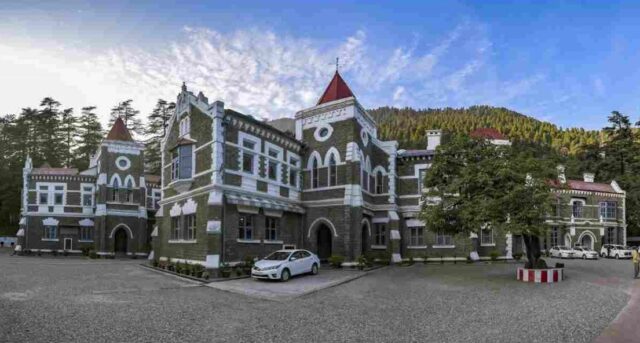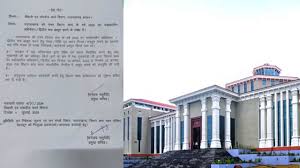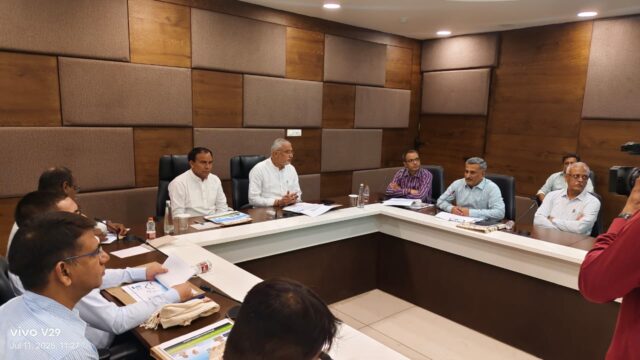Geological Survey of India Training Institute launches its dedicated 24×7 website

Geological Survey of India Training Institute (GSITI),Hydrabad, the training and capacity building wing of the Geological Survey of India (GSI), under the Ministry of Mines has recently launched its 24×7 website(https://training.gsiti.gsi.gov.in/) for round-the-clock accessibility of various online training courses on Earth Sciences to its stakeholders. This is in tune with the Digital India Campaign of the Government of India.
The beta version of this site, designed for catering to the training needs of the geoscience fraternity, hosts over 33 recorded training courses (164 lecture videos) and awards completion certificates. Moreover, the day-to-day activities of GSITI like new training announcements and lists of nominated participants of ongoing programmes are regularly uploaded on this website. Over 12380 participants have already registered on this website and are getting benefited from the rich technical content offered by this Institute.
Training and capacity building that enhances skill and efficiency is considered as the basic tenet for the growth of an organization. With the intent of providing induction-level orientation training to the new incumbents of GSI, the Training Institute was established in 1976. Over the last 45 years, GSITI has expanded to nine (09) training sites of GSITI located at Hyderabad, Nagpur, Lucknow, Kolkata, Shillong, Raipur, Zawar (Rajasthan), Chitradurga (Karnataka), and Kuju (Jharkhand). Hyderabad Centre, with a full-fledged campus of its own, is designated as headquarters for all other eight centres.
Keeping with the latest development and trends in Earth sciences and priorities of the organization, GSITI imparts various types of technical, administrative, and management training not only to the geoscientists of GSI but also participants from state Department of Geology and Mines (DGMs), Central Organizations (like AMD, MECL, IBM, NMDC, CMPDI), Research Institutes (NGRI, WIHG, BSIP, JNARDDC, NHPC), IITs, NITs and other Central and State Universities as well as other Earth Science organizations of the country. International geoscientists are also being trained regularly by the Institute under the aegis of Indian Technical and Economic Cooperation (ITEC) / Special Commonwealth Assistance for African Countries (SCAAP) programmes sponsored by the Ministry of External Affairs, Govt. of India. GSITI also conducts repeated programmes of ISRO and ONGC.
In the last one decade (2010 to 2020) GSITI has undertaken 1207 training courses while imparting knowledge in different domains to 27902 participants from International communities, DGMs, University faculty, and research scholars along with the employees of GSI. In 2020-21, GSITI resorted to e-Training and blended (both online and offline) mode in wake of COVID-19 pandemic and imparted 194 training for 21,112 participants in 1810 training days. The paradigm shifts in imparting training in the virtual medium led to participation of 14274 trainees of 504 academic institutions; 1637 from different state DGMs and other Central Organizations like AMD, MECL, IBM. 551 participants were from different State DGMs. Similarly, 790 from IIT-ISM, 531 from other IITs, 778 from BHU, 168 from NITs, and 12017 from other Central and State Universities were benefited from the programmes of GSITI in 2020-21. The remaining 5201 participants were from different offices of GSI. In 2021-22, GSITI has completed 134 training programmes benefiting over 12500 participants, mostly by imparting online training.
Besides, bringing the training courses of GSITI to the general public, the purpose of this website is to draw attention of the student community towards the subject of Geosciences and its importance in nation-building. As a part of the Commemoration of 75 years of Indian Independence (Azadi ka Amrit Mahotsav), GSITI has carried out over 22 e-lecture/training sessions for UG/PG students benefitting over 6000 participants. Similarly, under the BHUVISAMVAD, the flagship programme of the Ministry of Mines, facilitating interaction among GSI professionals with academia, GSITI has successfully interacted with /trained 27819 students/scholars/faculty members. In its constant endeavours to share knowledge on Earth Sciences and build the technical and scientific capacity of the country, GSITI further requests the common citizens to visit and explore the website.
The Geological Survey of India (GSI) was set up in 1851 primarily to find coal deposits for the Railways. Over the years, GSI has not only grown into a repository of geo-science information required in various fields in the country but has also attained the status of a geo-scientific organisation of international repute. Its main functions relate to creating and updating of national geoscientificinformation and mineral resource assessment. These objectives are achieved through ground surveys, air-borne and marine surveys, mineral prospecting and investigations, multi-disciplinary geoscientific, geo-technical, geo-environmental and natural hazards studies, glaciology, seism tectonic study, and carrying out fundamental research.
GSI’s main role includes providing objective, impartial and up-to-date geological expertise and geoscientific information of all kinds, with a focus on policy making decisions, commercial and socio-economic needs. GSI also emphasizes on systematic documentation of all geological processes derived out of surface and subsurface of India and its offshore areas. The organisation does so by using the latest and most cost-effective techniques and methodologies, including geophysical and geochemical and geological surveys.
GSI’s core competence in survey and mapping is continuously enhanced through accretion, management, co-ordination and utilization of spatial databases (including those acquired through remote sensing). It functions as a ‘Repository’ or ‘clearing house’ for the purpose and uses latest computer-based technologies for dissemination of geoscientific information and spatial data, through cooperation and collaboration with other stakeholders in the Geo-informatics sector.






